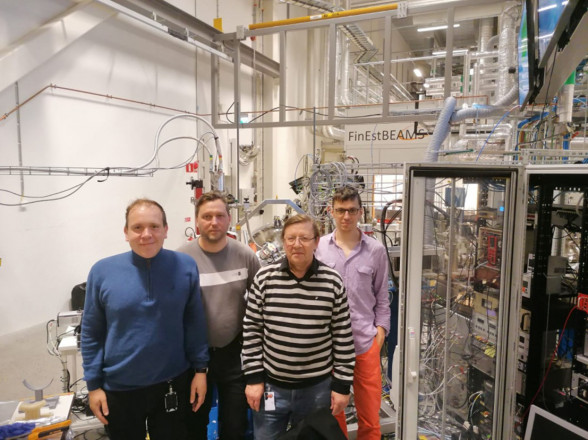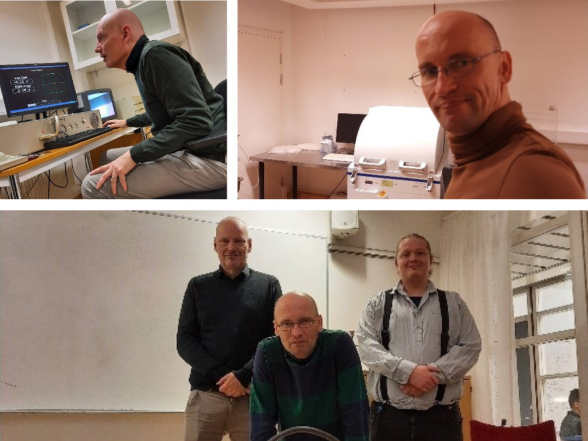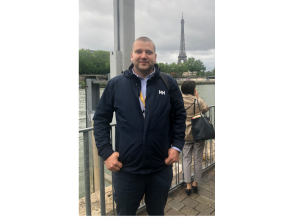In its January 25 issue, newspaper “Zinātnes Vēstnesis” (science journal published by the Latvian Academy of Sciences (LAS)) has published an interview with leading researcher from ISSP UL’s Laboratory of Kinetics in Self-Organizing Systems Dr.Phys. Anatoli Popov and researcher from the same laboratory MSc. Aleksander Platonenko about the research "In-depth understanding of the functional properties of modern materials under extreme radiation conditions and their prediction", which LAS has recognized as one of the most significant achievements of Latvia in theoretical science in 2020. In this joint effort of the teams of the ISSP UL and the Institute of Physics, University of Tartu, the damage processes caused by neutron and heavy ion irradiation in promising functional materials were studied.
Some of the necessary experiments were performed in our institute in cooperation with the Laboratory of Spectroscopy, which has undergone major upgrade and has acquired modern equipment with the support of CAMART2 project. Other part of experiments were carried out at a large-scale European research center - the synchrotron accelerator MAX IV in Lund, Sweden.
During the research, the group of scientists have obtained experimental data and theoretical ideas, which can be further used to predict the properties of radiation detectors (scintillators) currently used in CERN, as well as in the European Space Agency and other projects.
This big international research project has also given opportunity to doctoral students participating in the research group to attend conferences, participate in schools and seminars as well as communicate with prominent European scientists and ultimately get a world-class education.
Full text of the interview in Latvian: https://www.lza.lv/images/aktualitates_2020/ZV_01_2021/ZV_01_2021_Popovs.pdf



